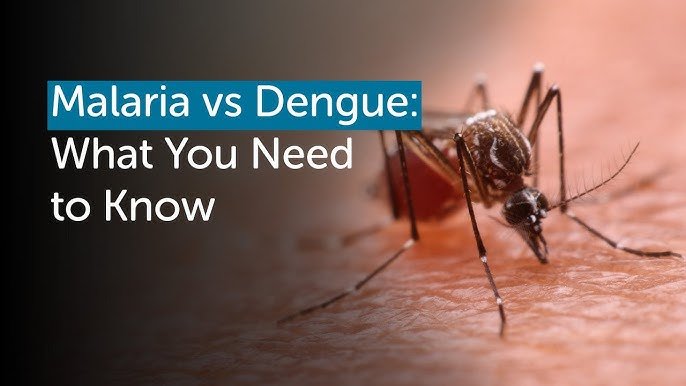- Post By - Dr . Devel Patel Hospital
- Post Date - 2025-07-14
Caution! Do Not Ignore the Symptoms of Malaria and Dengue
The rainy season often brings a wave of relief from the scorching heat, but it also welcomes a rise in mosquito-borne diseases — most notably malaria and dengue. Both illnesses can become serious or even life-threatening if not diagnosed and treated in time.
Let’s understand why these diseases are dangerous, what their symptoms look like, and how to stay protected.
`What is Malaria?
Malaria is caused by Plasmodium parasites, transmitted through the bite of infected Anopheles mosquitoes. The parasite multiplies in the liver and then infects red blood cells.
Common Symptoms of Malaria:
- High fever with chills and shivering
- Sweating as fever subsides
- Headache
- Muscle and joint pain
- Nausea and vomiting
- Fatigue
What is Dengue?
Dengue is a viral infection caused by the dengue virus, transmitted by the Aedes aegypti mosquito, which bites during the day.
Common Symptoms of Dengue:
- Sudden high fever (often 104°F or more)
- Severe headache
- Pain behind the eyes
- Muscle, bone, and joint pain ("breakbone fever")
- Skin rashes (usually appear 2–5 days after fever begins)
- Low platelet count, which can lead to bleeding
- In severe cases: vomiting blood, internal bleeding, or organ damage
Malaria vs. Dengue – Key Differences
| Feature | Malaria | Dengue |
|---|---|---|
| Cause | Plasmodium parasite | Dengue virus |
| Mosquito type | Anopheles | Aedes aegypti |
| Fever pattern | Cyclical with chills | Sudden high fever |
| Platelet count | Usually normal | Often drops significantly |
| Risk of bleeding | Rare | Common in severe dengue |
| Time of mosquito bite | Night (mostly) | Daytime (especially morning/evening) |
Why You Shouldn’t Ignore the Symptoms
Ignoring early signs of malaria or dengue can lead to:
- Organ damage (especially liver and kidneys)
- Internal bleeding
- Hospitalization and longer recovery time
- In rare cases, death
- Early diagnosis through blood tests and prompt treatment can save lives.
Prevention Tips
- Do not let water stagnate around your home (check pots, coolers, tanks).
- Use mosquito nets and repellents, especially at night.
- Keep surroundings clean and dry.
- Seek medical help immediately if fever lasts more than 2 days.
When to See a Doctor?
If you or your family members show any of these signs:
- Persistent high fever
- Severe body ache or rashes
- Bleeding gums or nose
- Vomiting or dizziness
- Extreme fatigue
Don’t self-medicate. Visit a nearby clinic or hospital and get tested for malaria and dengue.
Conclusion
Your health is your first priority. Malaria and dengue are preventable and treatable but only if addressed early. Stay informed, stay protected, and never ignore the symptoms.
 24/7 Medical Service
24/7 Medical Service
 24/7 Ambulance Service
24/7 Ambulance Service
 Emergency Service -
Emergency Service - 

